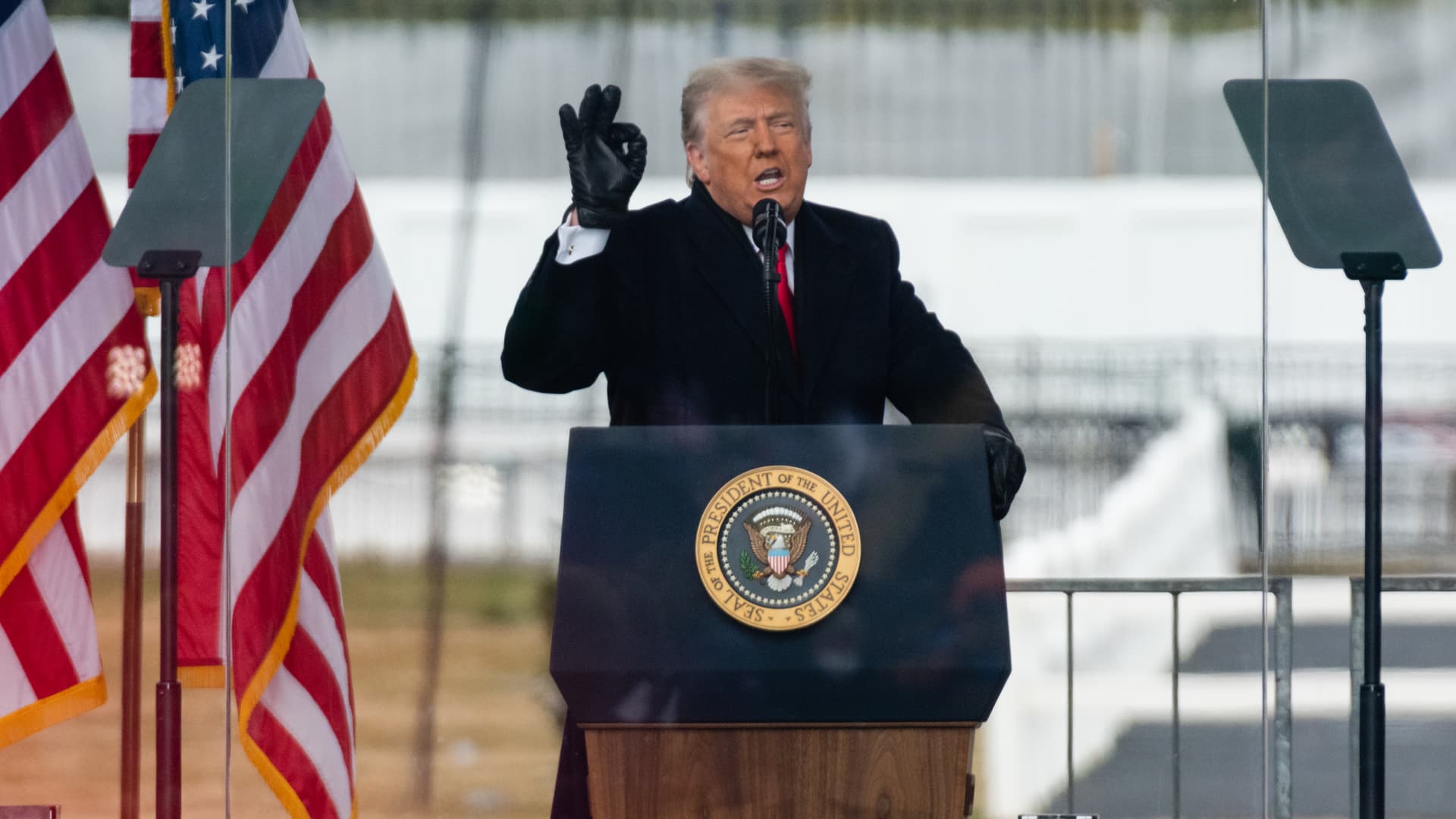U.S. President Donald Trump speaks during a “Save America Rally” near the White House in Washington, D.C., U.S., on Wednesday, Jan. 6, 2021.
Bloomberg | Bloomberg | Getty Images
A judge on Friday turned down a request by Donald Trump to cut allegedly “inflammatory” language about him sparking the Jan. 6, 2021, Capitol riot in the federal indictment charging him with crimes related to his bid to overturn his presidential election loss.
Trump had objected to sections of the indictment suggesting he effectively set the riot in motion by making false claims about election fraud and then-Vice President Mike Pence’s power to reverse election results, and by urging supporters to march to the Capitol on Jan. 6.
The riot disrupted for hours the certification of President Joe Biden’s electoral victory by a joint session of Congress, as lawmakers fled from the House and Senate chambers when a mob of Trump supporters invaded the Capitol complex.
Judge Tanya Chutkan, in her sharply toned Washington, D.C., federal court ruling Friday, wrote that Trump’s lawyers had failed to show that the language about Jan. 6 was prejudicial to him, as is required by case law to strike unnecessary language in an indictment.
Chutkan wrote that Trump’s court filing supporting his request itself makes “numerous and inflammatory and unsupported accusations of its own.”
Among them, she wrote, was Trump’s claims that Biden “directed the Department of Justice to prosecute his leading opponent through a calculated leak to The New York Times.”
Chutkan’s three-page ruling brushed aside Trump’s lawyers’ concerns that the indictment’s language would prejudice jurors against him at trial, which is due to begin in March.
She noted that she would not give jurors a copy of the four-count indictment, “eliminating that source of potential prejudice.”
Chutkan wrote that the jury selection process “will allow the court to examine and address the effects that pretrial publicity” about the case “has had on the impartiality of potential jurors.”
The judge, in an aside, wrote that such pretrial publicity would include “any generated by the Defendant” — Trump.
A spokesperson for Trump did not immediately respond to a request for comment.
The former president has pleaded not guilty in the case. One of the four counts against him accuses Trump of conspiring to impede the Jan. 6 certification by Congress of Biden’s victory.
The indictment’s language, in the sections Trump wanted cut by Chutkan, says, that on Jan. 6, “Defendant and co-conspirators repeated knowingly false claims of election fraud to gathered supporters, falsely told them that the Vice President had the authority to and might alter the election results, and directed them to the Capitol to obstruct the certification proceeding and exert pressure on the Vice President to take the fraudulent actions he had previously refused.”
The language Trump objected to also included the part that says after his supporters broke through barriers around the Capitol grounds and “violently” attacked law-enforcement officers and breached the building, he ” ‘refused’ ” to ‘issue a calming message aimed at the rioters,’ ” Chutkan noted.
Instead, Trump ” ‘issued a Tweet intended to further delay and obstruct the certification,’ attacking Mike Pence for failing to halt the certification proceedings,” Chutkan noted in her ruling, quoting from the indictment.

